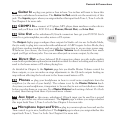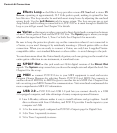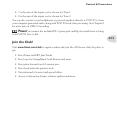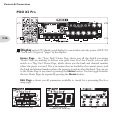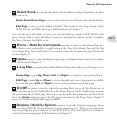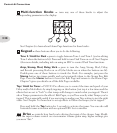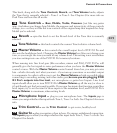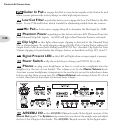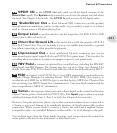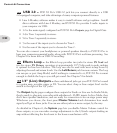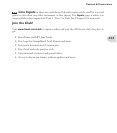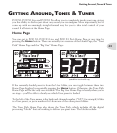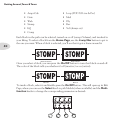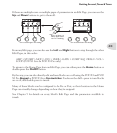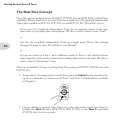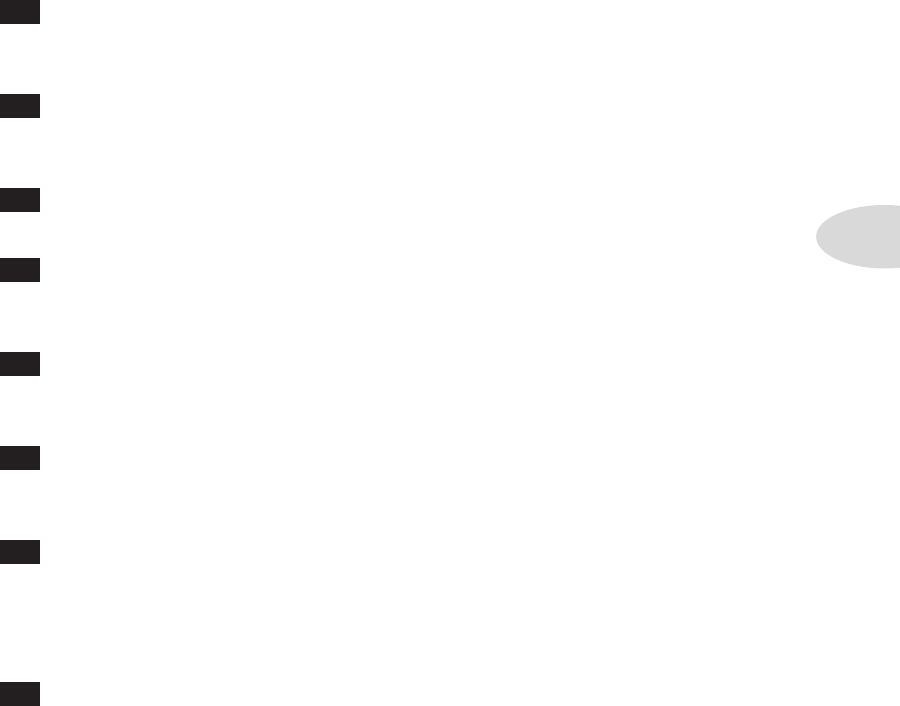
Controls & Connections
3•21
25
S/PDIF I/O – the S/PDIF Out jack sends out 24-bit digital versions of the
Direct Out signals. The System setup screen lets you choose the sample rate and adjust
the level. See Chapter 6 for details. The S/PDIF In jack receives 24-bit digital audio.
26
Studio/Direct Out – these balanced XLR connectors provide speaker/
microphone/room simulation, perfect in the studio for pro-quality sound or as a direct
send to a house mixer or PA when playing live.
27
Output Level – use this switch to set the output level of POD X3 Pro’s XLR
Direct Outs to Mic or Line level.
28
Direct Out Ground Lift – this switch lets you lift the grounds of POD X3
Pro’s XLR Direct Outs. This can be handy if you get an audible hum caused by a ground
loop when connecting to other grounded equipment.
29
Unprocessed Out – these unbalanced 1/4-inch connectors give you an
unprocessed guitar signal, tapped off of your POD X3 Pro’s guitar input. This is perfect for
recording when you want to re-amp or use plugins to process your guitar track.
30
FBV Pedal – connect an optional foot controller here, including the FBV, FBV
Shortboard, and FBV Express. The System page lets you set it all up. See Chapter 6 for
details. Note that POD X3 Pro doesn’t work with the older Line 6 Floor Board or FBV2.
31
MIDI – connect your POD X3 Pro to your MIDI equipment to send and receive
Program Change Messages for selecting Presets. POD X3 Pro’s MIDI Out connects to
another device’s MIDI In; its MIDI In goes to another device’s MIDI Out. Chapter 6 has
info on setting your MIDI Channel for communication. Visit www.line6.com/manuals for
more comprehensive MIDI CC information.
32
Variax – this input provides power and a direct digital audio connection between
a Line 6 Variax guitar or bass and the POD X3 Pro. The Inputs page is where you assign
whether this input feeds Tone 1, Tone 2 or both. See Chapter 6 for more info.
Be sure to keep the protective plastic cap on this connection when it’s not connected to
a Variax, so you won’t damage it by mistakenly inserting a 1/4-inch guitar cable or other
connection. When you are ready to connect a Variax, use only Line 6 supplied Variax-
compatible cables – not standard Ethernet or other cables – to avoid damage to the jack.
You can learn more about the Variax family of guitars, each one giving you the sound of an
entire guitar collection in one instrument, at www.line6.com.



